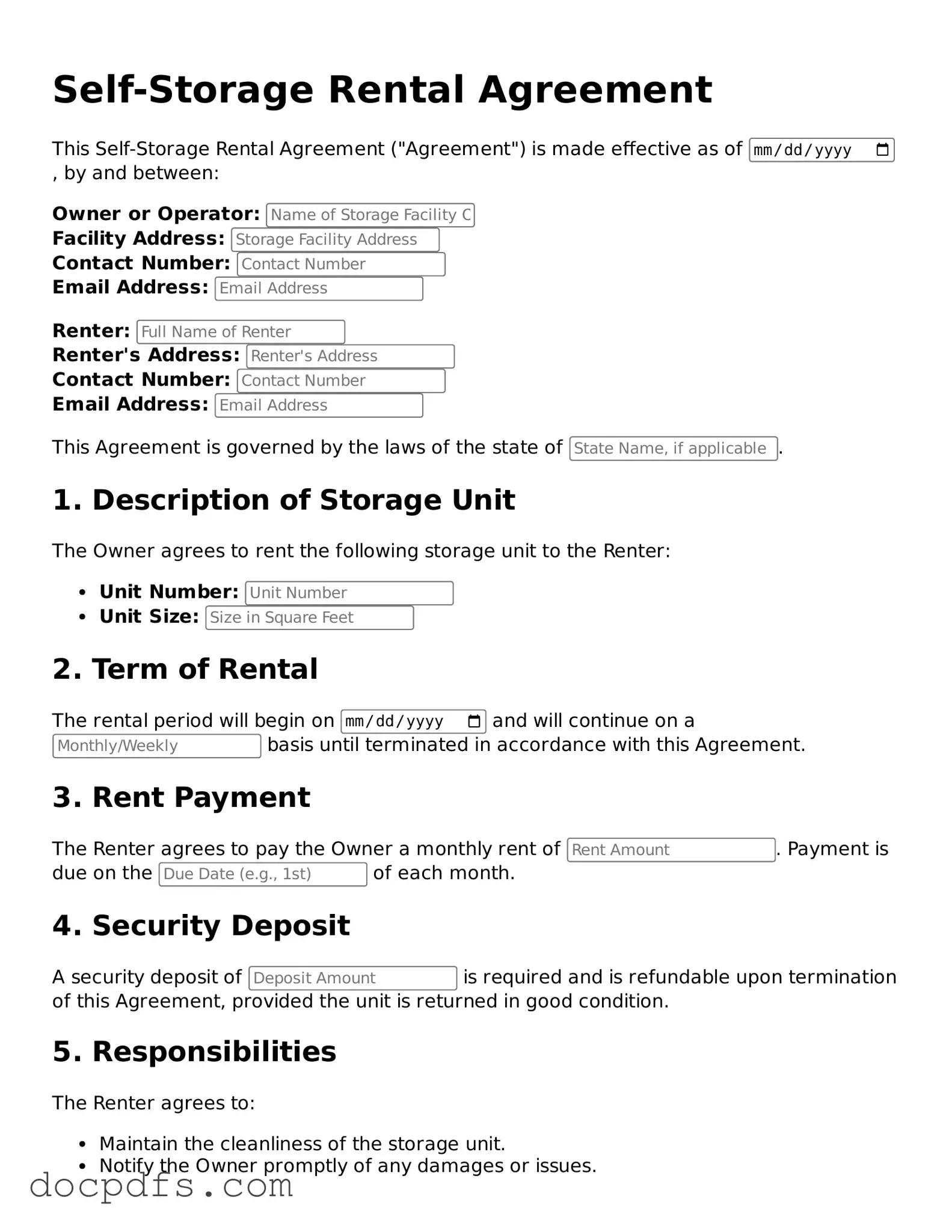What is a Self-Storage Rental Agreement?
A Self-Storage Rental Agreement is a legal document that outlines the terms and conditions under which a storage unit is rented. It serves to protect both the renter and the storage facility by clearly stating responsibilities, payment terms, and other important details related to the rental.
The agreement usually includes the following details:
-
The names and contact information of both the renter and the storage facility.
-
A description of the storage unit, including its size and location.
-
The rental rate and payment schedule.
-
The duration of the rental agreement.
-
Rules and regulations regarding the use of the storage unit.
-
Terms related to termination or renewal of the agreement.
How long is the rental agreement valid?
The duration of the rental agreement can vary. Some agreements are month-to-month, while others may be for a fixed term, such as six months or a year. Always check the specific terms in your agreement to understand how long you are committed to renting the unit.
What happens if I miss a payment?
If a payment is missed, the storage facility typically has the right to charge late fees. Continued non-payment may lead to the facility taking further action, which can include locking you out of your unit or starting the process of auctioning off your belongings. It's crucial to communicate with the facility if you're facing financial difficulties.
Can I access my storage unit at any time?
Access hours for your storage unit will be specified in the agreement. Many facilities offer 24/7 access, while others may have limited hours. Make sure you know the access rules to avoid any inconvenience.
What are the rules regarding the items I can store?
Most storage facilities have a list of prohibited items. Common restrictions include:
-
Hazardous materials (e.g., chemicals, explosives)
-
Perishable goods
-
Stolen property
-
Live animals
Always review these rules to ensure that you are compliant and to avoid potential issues.
What happens if I want to terminate the agreement early?
If you wish to terminate the agreement before its expiration, you will need to follow the procedures outlined in the document. This often includes providing written notice to the facility. Be aware that there may be penalties or fees for early termination, depending on the terms of your agreement.
Is insurance required for my belongings in storage?
Insurance is often recommended, though it may not be required by the storage facility. Some facilities offer insurance options, while others may require proof of insurance from your own provider. Protecting your belongings is important, so consider your options carefully.
What should I do if I have further questions about the agreement?
If you have additional questions, the best course of action is to contact the storage facility directly. They can provide clarification on specific terms and conditions. It's always better to ask questions upfront to ensure you fully understand your rights and responsibilities.

